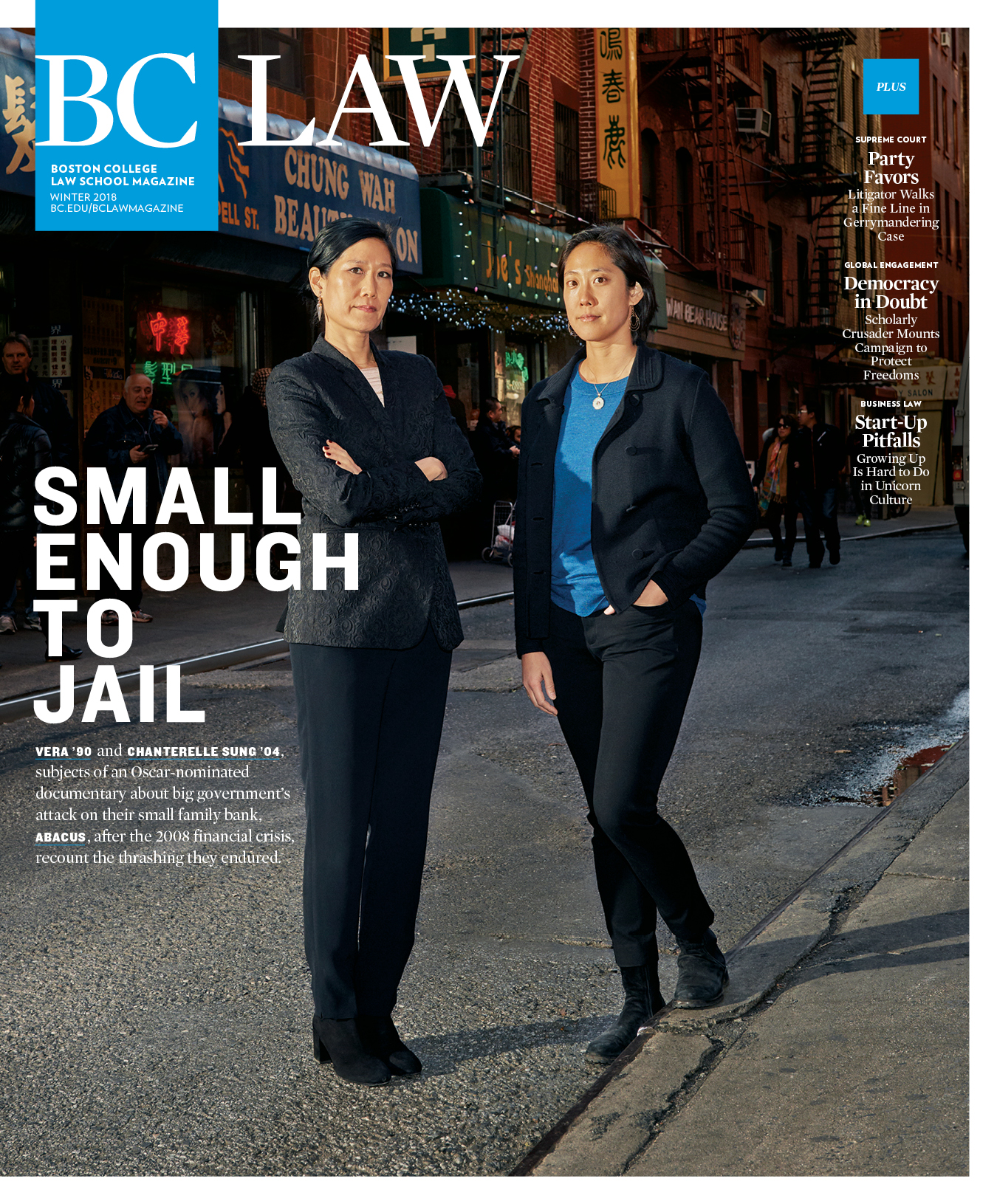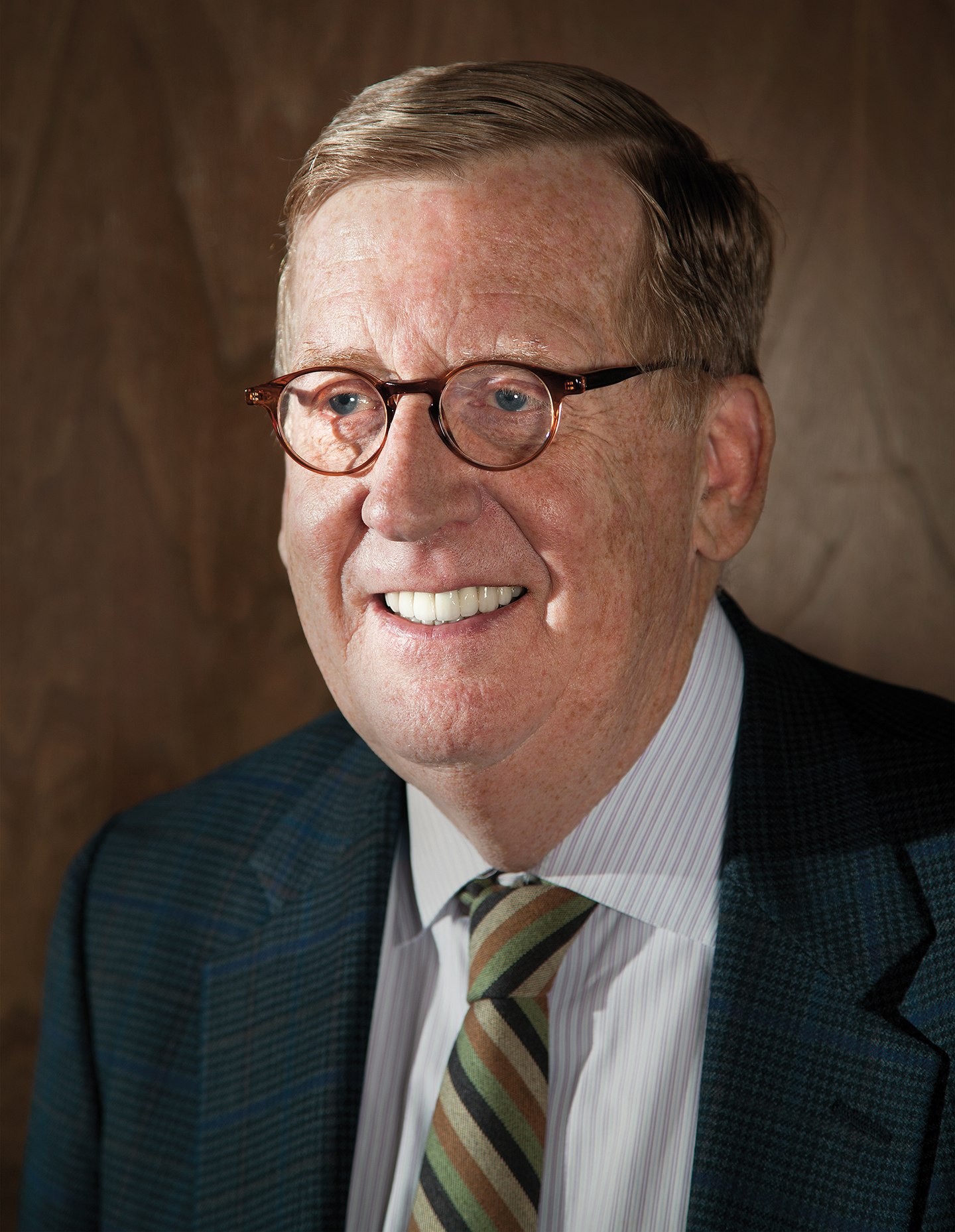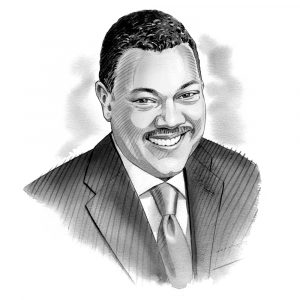Paul M. Smith has argued 19 US Supreme Court cases, most notably the landmark case Lawrence v. Texas, which overturned state sodomy laws and paved the way for same-sex marriage. In October, he represented plaintiffs in Gill v. Whitford, which challenges Wisconsin’s state electoral districts and could have major implications for the future of the country’s electoral system. During a recent visit to BC Law, Smith and Dean Vincent Rougeau talked over topics like the oral arguments in Gill, US Supreme Court advocacy, and legal education.
VR: What was the biggest challenge you faced in arguing Gill?
PS: The main problem in gerrymandering cases is drawing a line between politics-as-usual and extreme, unconstitutional gerrymandering. When I argued Vieth v. Jubilirer [2004], also about gerrymandering, Justice Kennedy said, “Give me some standards, and give me some measuring techniques.” And that’s what we tried to do in Gill, using a new technique that assigns a number to each gerrymander based on the percentage of “wasted votes.” That allows us to compare gerrymanders across the country and back into time. And the bias in the Wisconsin maps is off the charts.
VR: These extreme gerrymanders are undermining people’s faith in our democracy. If you live in a gerrymandered district where one party will always win, at what point do you stop voting? People increasingly are cynical about the democratic process, and that will further push power towards those with the resources to control it.
PS: The cynicism is caused by gerrymandering in part, but a lot of it is caused by false claims of rigged elections and massive voter fraud. Some people have a great investment in creating the cynicism, the lack of faith in the system.
VR: I found it a little disingenuous when Chief Justice Roberts claimed, during the Gill oral arguments, “If we rule against a map, the court will be viewed as political.” You know what? You’re deciding a case with major political ramifications. But more broadly, the judges have to realize this issue transcends politics. In states that have citizen initiatives, like Arizona and California, people are telling their legislators, “You’re overdoing the politics. Independent commissions should be drawing these maps.”
“The main problem in gerrymandering cases is drawing a line between politics-as-usual and extreme, unconstitutional gerrymandering.” —Paul Smith
PS: If we lose this case, we’ll see a really strong movement to do that alternative remedy. There already is, but I think it would get a shot in the arm. What’s interesting about the Chief Justice’s remark is that the court already looks political based on how they’re going to divide on this case. Whether or not my side gets Justice Kennedy, we already essentially know that we’re going to get four Democratic-appointee liberals, and they’re going to get four Republican-appointee conservatives. And it’s not altogether obvious why the justiciability of this issue should have an ideological component.
VR: You’ve also done appellate work in, among other areas, LBGT rights and the free speech rights of the people who produce and sell video games. That’s quite a range. How do you manage it?
PS: In the last 25 years, we’ve seen the emergence of a Supreme Court bar, people like me who are effectively generalists. We get called upon to argue almost every case. And that means a generalist is talking to justices who are generalists. But the generalist who’s arguing needs to be sufficiently educated on the highly specialized area of the law that’s at issue in a given case, so typically you have a patent lawyer or election lawyer or whatever kind of lawyer on the team to educate the appellate advocates, who in turn can speak more effectively to the justices than the specialist could do.
VR: That’s consistent with the history of Anglo-American trial practice. The barrister in England took whatever case came, educated him or herself to the facts, and presented them in court. Specialization evolved over time, but it’s not really part of our tradition. I want my students prepared to be successful advocates, no matter what specialty they choose. The training enables people to absorb lots of complicated information and then replay it in a way that a broader set of people can understand.
PS: This quality of lawyers also results from the fact that in this country we don’t allow people to specialize in law at seventeen. They go to college or university, where they study lots of different topics. In almost any other country, you look at the law from the time you’re in high school. And you don’t have that foundation which the law schools in America then build upon, with lots of courses that draw on economics or philosophy or even the arts.
VR: That’s one of our hallmarks at BC. When students walk in the door, we don’t know if they’ll end up as litigators, commercial lawyers, immigration lawyers, or if they’ll be working in policy or business and not actually “practicing law.” But we want to make sure they recognize how integral law is to our life as a community, our life as a democracy. You need that broader training to do it well.




